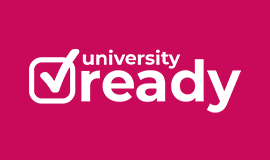Physics / Astronomy
-
Particle physics
Learn more to access more details of Particle physicsThis free course, Particle physics, will give you an overview of current concepts and theories in the field. You will learn about the fundamental components of matter – known as leptons and quarks – and the composite particles, such as protons and neutrons, which are composed of quarks. You will see that all particle reactions may be described ...

Free course
5 hours
Level: 1 Introductory
-
Moons of our Solar System
Learn more to access more details of Moons of our Solar SystemIn this free course, Moons of our Solar System, explore the many moons of our Solar System. Find out what makes them special. Should we send humans to our Moon again?

Free course
24 hours
Level: 1 Introductory
-
Galaxies, stars and planets
Learn more to access more details of Galaxies, stars and planetsThis free course, Galaxies, stars and planets, is a general introduction, including scale of the universe from the very large to the very small; orbits and gravity; the Solar System; the Sun and other stars; galaxies and the composition of astronomical objects.

Free course
8 hours
Level: 1 Introductory
-
An introduction to exoplanets
Learn more to access more details of An introduction to exoplanetsThis free course, An introduction to exoplanets, introduces our galaxy's population of planets, and some of their many surprises. It explains the methods used by astronomers to study exoplanets, and provides a general introduction to the methods of scientific inquiry. The course culminates in discussion of life elsewhere in our Galaxy.

Free course
24 hours
Level: 1 Introductory
-
Explore Moon rocks collected from the first Moon landing
Take part now to access more details of Explore Moon rocks collected from the first Moon landingUse our Virtual Microscope to examine a selection of Moon rocks collected by Neil Armstrong and Buzz Aldrin, from the Apollo 11 mission in 1969.

Activity
Level: 1 Introductory
-
Icy bodies: Europa and elsewhere
Learn more to access more details of Icy bodies: Europa and elsewhereThe new discipline of astrobiology that is, the science of searching for extraterrestrial life, is not only rapidly growing, but has also captured the public imagination. This free course, Icy bodies: Europa and elsewhere, examines the emergence of icy satellites of distant planets as potential sites of extraterrestrial life, looks at the ...

Free course
17 hours
Level: 2 Intermediate
Biology / Life Sciences
-
Blood and the respiratory system
Learn more to access more details of Blood and the respiratory system‘Don’t hold your breath’ is an expression you’ve probably heard many times, but may not have thought too much about. In this free course, Blood and the respiratory system, you’ll study why respiration is so important for life, including how air enters and leaves the lungs, how oxygen is transported in the blood, the many dynamic factors that ...

Free course
10 hours
Level: 2 Intermediate
-
Pain and Aspirin
Learn more to access more details of Pain and AspirinWhat causes pain and how do we stop it? This free course, Pain and Aspirin, looks at how the human body responds to the release of certain chemicals and as a result feels pain. Pain can be reduced by inhibiting the formation of such chemicals and you will learn how the molecular structure of aspirin has been formulated to help in this process.

Free course
4 hours
Level: 2 Intermediate
-
General principles of cellular communication
Learn more to access more details of General principles of cellular communicationLearn about how cells sense and respond to extrinsic stimuli, a capacity that allows them to communicate with each other and to respond to changes in their environment. This free course, General principles of cellular communication, explains cell signalling pathways in general terms and identifies some of the universal characteristics of ...

Free course
8 hours
Level: 3 Advanced
-
Influenza: A case study
Learn more to access more details of Influenza: A case studyThis free course, Influenza: A case study, explores the biology of influenza, covering a range of topics including: the virus, infection, replication, mutation, immune responses, pathology, surveillance, diagnosis and treatment.

Free course
6 hours
Level: 3 Advanced
-
Migration
Learn more to access more details of MigrationMigration is a free course looking at the migrations of animals, with special reference to birds, and also introducing the themes of movement, selection and homeostasis.

Free course
8 hours
Level: 2 Intermediate
Chemistry
-
Metals in medicine
Learn more to access more details of Metals in medicineThis free course, Metals in medicine, focuses on the use of metals and their compounds in the production of images of internal structures in our bodies and on the role of metal-containing compounds as drugs in the treatment of disease.

Free course
12 hours
Level: 2 Intermediate
-
What chemical compounds might be present in drinking water?
Learn more to access more details of What chemical compounds might be present in drinking water?Do you want to know what’s in the water that you drink? This free course, What chemical compounds might be present in drinking water?, examines the chemical compounds that occur in drinking water. A high level of certain anions in water can cause environmental pollution and health problems. Cations are also important. For example, calcium salts ...

Free course
6 hours
Level: 2 Intermediate
-
Introduction to polymers
Learn more to access more details of Introduction to polymersThis free course, Introduction to polymers, examines the use of polymers and demonstrates how their properties are controlled by their molecular structure. You will learn how this structure determines which polymer to use for a particular product. You will also explore the manufacturing techniques used and the how the use of polymerisation can ...

Free course
20 hours
Level: 3 Advanced
More science
-
Assessing contemporary science
Learn more to access more details of Assessing contemporary scienceIt will explore the ways in which scientific knowledge develops, undergoes peer review and is communicated. The second half of the course will focus more closely on a specific scientific topic – plastics – and give you a chance to practise these skills by considering the topic's social impact, building a glossary of unfamiliar terms, and ...

-
Ethics in science?
Learn more to access more details of Ethics in science?This free course, Ethics in science? discusses how scientists have a moral and ethical responsibility to consider whether they should carry out an experiment. In this short course you will learn of the first clinical trials undertaken for scurvy and small pox and gain an understanding of how much more rigorous today’s clinical trials are. You ...

-
Systems Thinking: Diagramming Tutorials
Watch now to access more details of Systems Thinking: Diagramming TutorialsExplore a range of systems diagrams and learn how to draw them - from spray, rich picture, systems map, influence, multiple cause and sign.


This resource is part of the University Ready hub.
Find more resources like this on the hub homepage.
-
University Ready hub
Learn more to access more details of University Ready hubA collection of resources from all of Wales' universities to help you get started with higher education.

External link
Rate and Review
Rate this article
Review this article
Log into OpenLearn to leave reviews and join in the conversation.
Article reviews